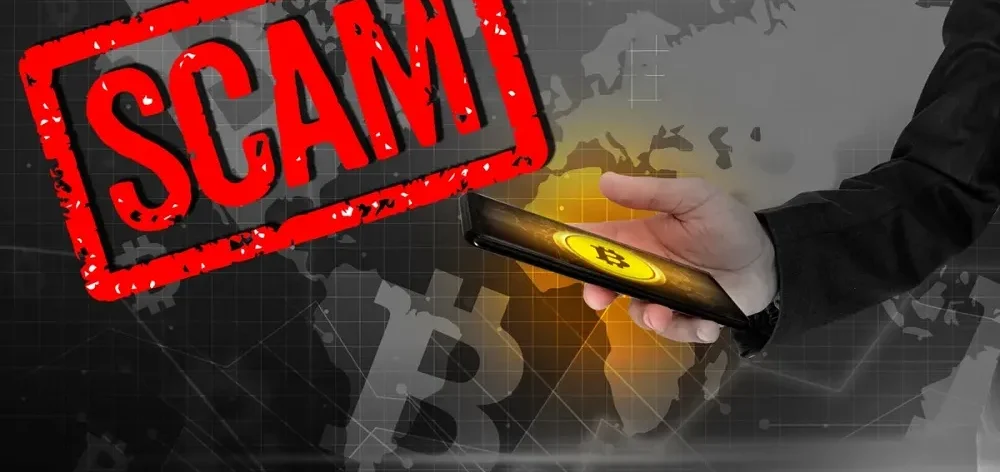In the dynamic world of cryptocurrencies, where innovation intersects with finance, the potential for lucrative investment opportunities is vast. However, alongside the promise of wealth creation comes the ever-present threat of crypto scams. These scams can take various forms, from fake ICOs and Ponzi schemes to phishing attacks and fraudulent exchanges, leaving investors vulnerable to financial loss and emotional distress. Fortunately, there are steps you can take to protect yourself and others from falling victim to crypto scams. In this comprehensive guide, we’ll walk you through the process of report crypto scam, empowering you to safeguard your investments and contribute to a safer crypto ecosystem.
- Recognize the Signs of a Crypto Scam: Before diving into the reporting process, it’s essential to familiarize yourself with the common signs of crypto scams. These may include unrealistic promises of high returns, pressure to invest quickly, lack of transparency about the project or platform, and requests for sensitive information or access to your cryptocurrency wallet. By staying vigilant and conducting thorough due diligence before investing, you can avoid many scams altogether.
- Document Everything: If you suspect that you’ve encountered a crypto scam, the first step is to gather and document all relevant information. This includes transaction records, correspondence with the scammer or platform, screenshots of conversations or advertisements, and any other evidence that supports your claim. The more comprehensive your documentation, the stronger your case will be when reporting the scam to authorities or seeking restitution.
- Report to Regulatory Authorities: Many countries have regulatory agencies tasked with overseeing financial markets and protecting investors from fraud. These agencies, such as the Securities and Exchange Commission (SEC) in the United States or the Financial Conduct Authority (FCA) in the United Kingdom, have investigative powers and can take action against fraudulent entities operating within their jurisdiction.
When reporting a crypto scam to regulatory authorities, provide them with all the evidence you’ve gathered and cooperate fully with their investigation. You can typically file a complaint through the agency’s website or contact their enforcement division directly. While regulatory processes may take time, reporting the scam increases the chances of recovering your funds and preventing the scammer from victimizing others.
- Utilize Online Reporting Platforms: In addition to regulatory authorities, there are online platforms and databases dedicated to collecting reports of crypto scams and fraudulent activities. These platforms serve as valuable resources for investors looking to research potential scams and warn others in the community.
Websites like Scamwatch, CryptoScamAlert, and Coinfirm allow users to submit reports of suspicious projects, exchanges, or individuals. By sharing your experience and contributing to these databases, you help raise awareness about crypto scams and protect fellow investors from falling victim to similar schemes.
- Seek Legal Assistance: Dealing with crypto scams can be complex, especially when they involve international transactions or decentralized platforms. In such cases, seeking legal assistance from professionals with expertise in cryptocurrency fraud is essential. An experienced attorney can help you understand your rights, navigate the legal process, and represent your interests effectively.
When choosing a lawyer, look for someone with a track record of handling crypto-related cases and who is familiar with the intricacies of blockchain technology. They can advise you on the best course of action, whether it involves pursuing civil litigation against the scammer or collaborating with law enforcement agencies to bring criminal charges.
- Join Community Efforts and Support Groups: The crypto community is vast and interconnected, with many individuals and organizations dedicated to combating fraud and supporting victims of scams. Join online forums, social media groups, or dedicated communities focused on crypto security and fraud prevention. Share your experience and seek advice from others who have been through similar situations.
Additionally, consider participating in community efforts to raise awareness about crypto scams and educate others about how to spot and avoid fraudulent activities. By working together, we can create a safer and more resilient crypto ecosystem for everyone.
In conclusion, protecting your investments from crypto scams requires diligence, awareness, and proactive engagement. By recognizing the signs of scams, documenting your interactions, reporting suspicious activities to regulatory authorities and online platforms, seeking legal assistance when necessary, and participating in community efforts, you can help safeguard your funds and contribute to a safer crypto environment for all. Remember, staying informed and remaining vigilant are your best defenses against crypto scams.





